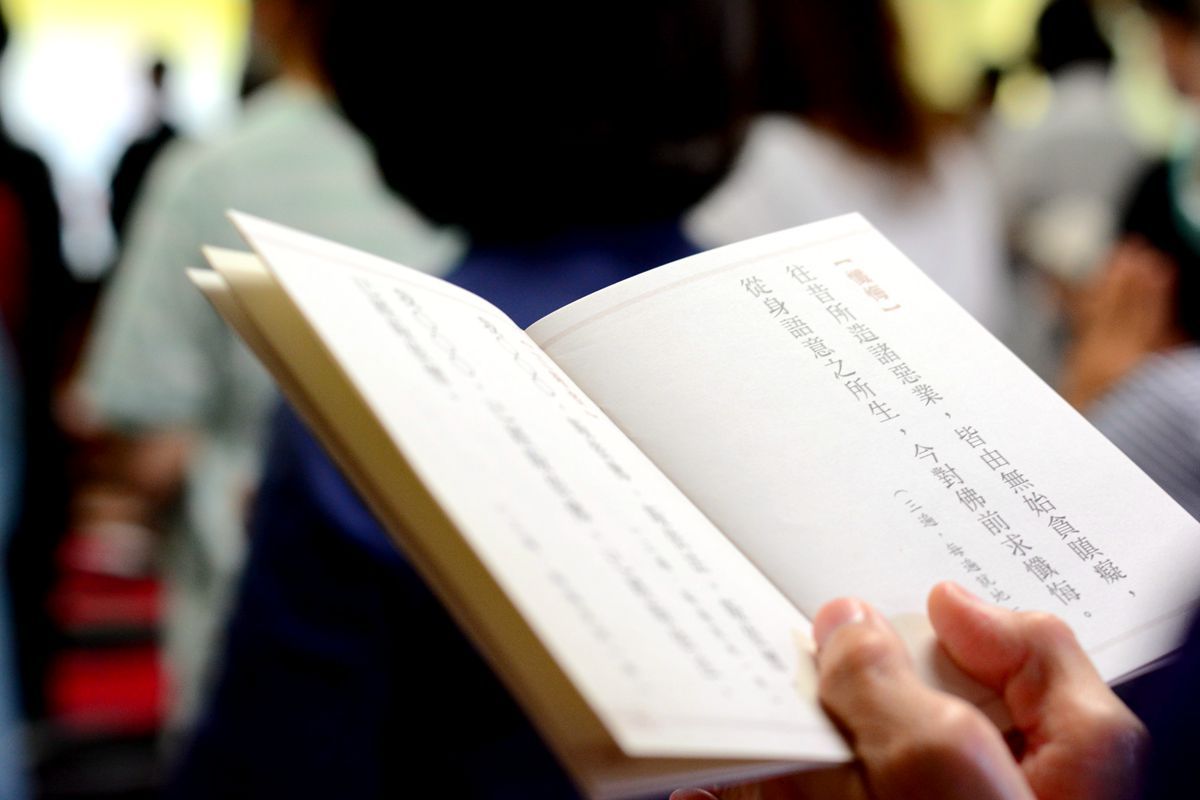Special Topics
To practice the Buddhist teaching is to transfer merit in its true sense
 From the perspective of the law of cause and condition, causality, and the fact that we reap what we sow, it is only natural that the merit resulting from our virtuous action in line with the Dharma will eventually return to ourselves. On the other hand, can others truly benefit from the merit we transfer to them?
From the perspective of the law of cause and condition, causality, and the fact that we reap what we sow, it is only natural that the merit resulting from our virtuous action in line with the Dharma will eventually return to ourselves. On the other hand, can others truly benefit from the merit we transfer to them?Ven. Yin Rong explained that, "Whether or not our merit transfer to sentient beings is effective depends on how we as dedicators of merit can actually inspire the recipient to generate purity of mind through our virtuous acts. While the person dedicating merit can develop in compassion and increase their meritorious virtue, the recipient can give rise to purity of mind, thus eliminating their karmic obstacles and creating blessings."
As Master Sheng Yen often pointed out in group practice sessions during the closing talks, merit transfer is not only about verbally reciting the verse; it also involves growing our character, transforming our personality, and improving our mindset. Its actual practice lies in "changing ourselves and adapting to others; giving of ourselves for the benefit of all." When we benefit even just a little bit from the Buddha's teachings, we should always practice it through our body, speech, and mind, as well as share it with others. Only by doing so can we truly benefit others. Furthermore, if we want to benefit others more, then we must put in more effort to cultivate ourselves.
Extended reading:
Transfer of Merit –The Practice of Generating a Great Mind
The Transfer of Merit: the Giving of Dharma that could be Practiced at any Time
What Buddhist Scriptures Reveal about the Evolution of Merit Transfer
Dedicating the merit for attainment of nirvana is superior to praying for karmic blessing in the human and heavenly realms
To practice the Buddhist teaching is to transfer merit in its true sense
Compassionately delivering sentient beings, dedicating the merit for supreme Bodhi
Dedication verses commonly seen in the Chinese Buddhist tradition
Tibetan Buddhism: The most sublime chapter on the Practices and Vows of Bodhisattva Samantabhadra
Q1: How is merit transfer different from the blessings we give to others in our everyday life?
Q2: Must we first accumulate merit before we can transfer it to others?
Q3: Would it matter if I don't transfer merits after chanting?
Q4: When we transfer the merit generated from self-cultivation to our family, friends, and deceased loved ones, can they really receive it?
Q5: Should we still transfer merit to specific people after we have already transferred it to all sentient beings in the Dharma realm?
Q6: The terms "making vows" and "transfer of merit" are often used alongside each other in Mahayana Buddhist scriptures. What are the differences between them?
Q7: Are there corresponding dedication verses for different Dharma methods? Can these dedication verses be used interchangeably?
Resource: Humanity Magazine Issue #413
Translation: Ariel Shen
Editing: Keith Brown, Chiacheng Chang
